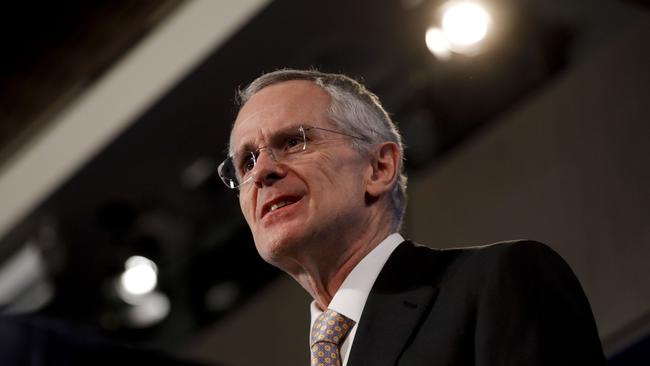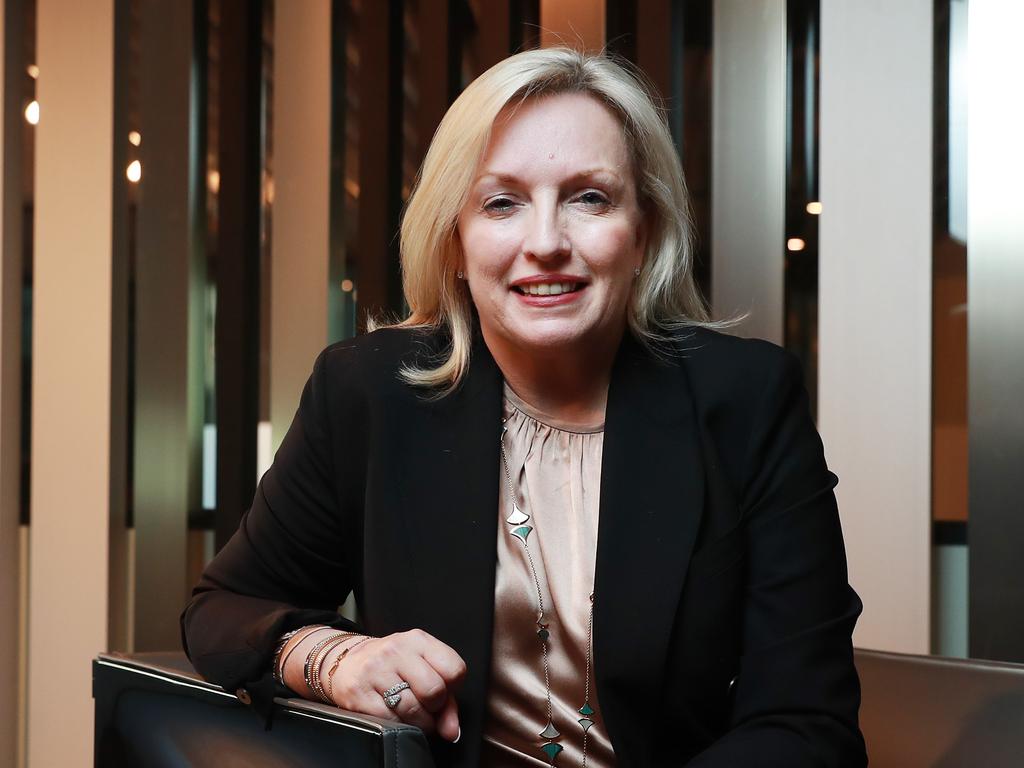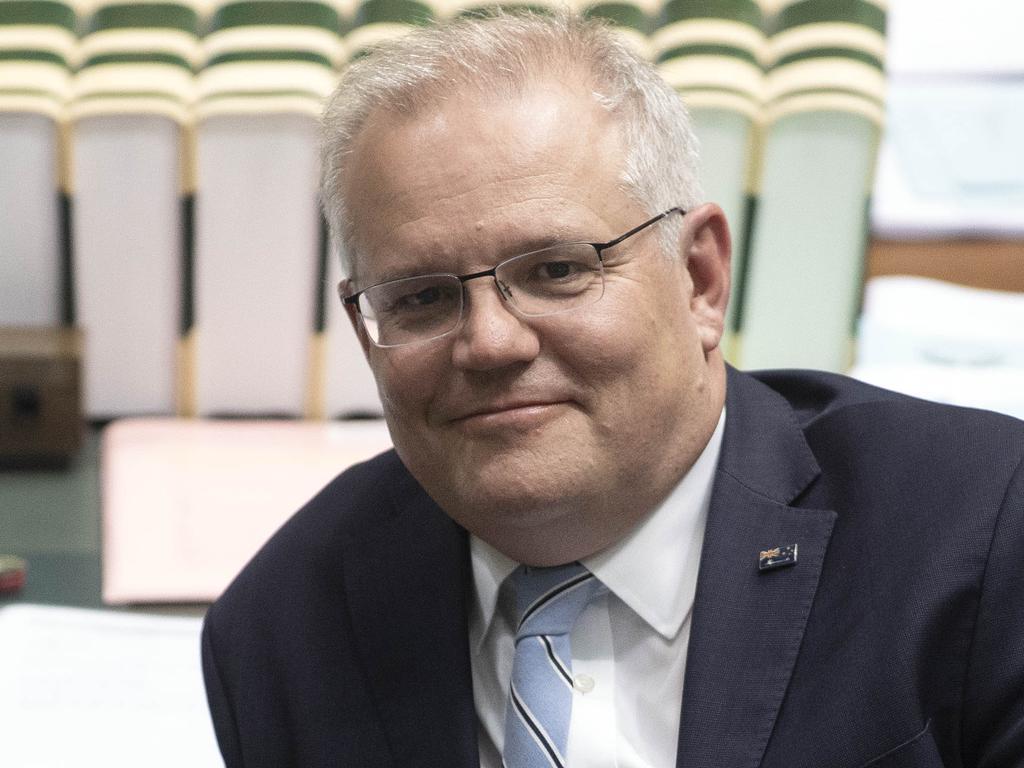ACCC chair Rod Sims flags crackdown on tech giants and monopolies
The head of the competition watchdog has warned tech giants must be kept in check ‘so the innovation of others is not stifled’

The competition watchdog has urged tech giants Facebook and Google to accept their “obvious” market power, saying they risk stifling innovation and damaging journalism unless media companies are properly compensated for their news content.
Head of the Australian Competition & Consumer Commission Rod Sims issued the warning in a speech flagging a shake-up of Australian laws cracking down on monopoly companies and the need for greater price regulation at major ports and airports.
With the Morrison government due to introduce legislation for a news media bargaining code by the end of the year, Mr Sims conceded one of the draft code’s key measures forcing digital platforms to compensate news organisations for using their content could be weakened.
Under the draft proposal, if the parties cannot reach agreement after three months, media companies can ask to settle through a “final offer arbitration”.
The model has been vehemently opposed by Google.
The digital platform and media business must submit a final offer on the remuneration to be paid by Google or Facebook. The arbitrator, separate to the ACCC, would have a month to choose one of the offers or adjust the more reasonable offer.
Mr Sims said there must be a mechanism for arbitration and a non-discrimination clause so the tech giants could not discriminate against those in or out of the code.
He added: “All I can say at the moment is some form of arbitration is important but I can’t foreshadow what is going to happen beyond that.”
Mr Sims expected a “sensible outcome” on the code soon and acknowledged more regulation of digital platforms may be required and considered by the ACCC.
“The digital platforms, Google and Facebook, clearly have market power. It is simply extraordinary how the digital platforms continue to reject that they have market power when everyone else sees it as obvious,” he said.
“Further, their ‘take it or leave it’ attitude to dealing with news media businesses is damaging journalism, which in my strong view is essential to our society.
“The main digital platforms have accumulated huge wealth from innovation, and later steps to cement their market power. While we have all benefited from their innovation, we must ensure the innovation of others is not stifled.”
Outlining a reform agenda to put the interest of consumers ahead of the profits of business, Mr Sims said governments needed to stop privatising significant infrastructure assets such as ports and airports with no rules on how much the new owner could charge users.
He called for a regime that would see those owners with market power subjected to some form of price regulation.
“Properly priced infrastructure is vital for our economy,” he said.
“The resulting unfettered market power of some ports is costing our nation dearly. The same situation applies to our airports.
“We need to stop the privatisation of assets with no regulation on the way they set future prices. This sees high initial sales proceeds go to the government vendors, which is subsequently ‘paid for’ by the users of that infrastructure through excessive prices for many decades afterwards.”
The ACCC has a case before the Federal Court against NSW Ports, alleging the company and its subsidiaries Port Botany and Port Kembla made agreements with the state government that had an anti-competitive purpose.
Mr Sims urged small business to back an unfair practices provision, which would make unfair terms in a contract illegal. He said the issue of market concentration would only grow during the pandemic as businesses failed and people spent more time online.
“Currently our merger laws cannot prevent all inappropriate increases in market power,” he said.
While Mr Sims would not say how he planned next year to overhaul merger laws – which are designed to prohibit amalgamations of different companies that substantially reduce competition in the market – he said Australians needed to ask how much market concentration they could tolerate
“It is the belief that businesses will only and always act in the interests of their customers that I object to, because it is simply not correct,” Mr Sims said.
“We must, in all decisions affecting our market economy, take into account market power and the consequences that flow from it. This is particularly crucial at this time, as we confront the economic challenges of the COVID-19 pandemic, and the implications of an ever-growing digital economy.”








To join the conversation, please log in. Don't have an account? Register
Join the conversation, you are commenting as Logout